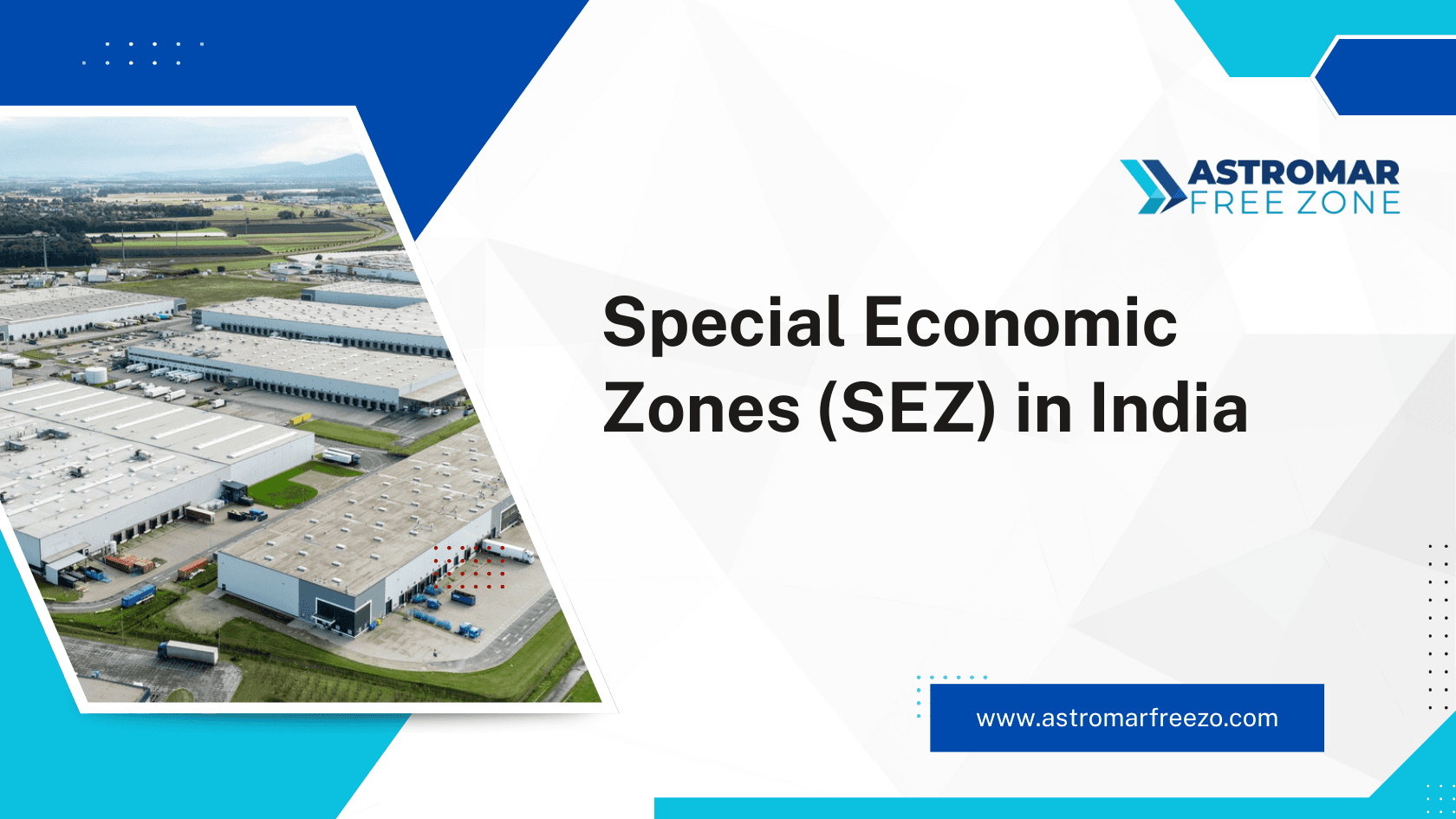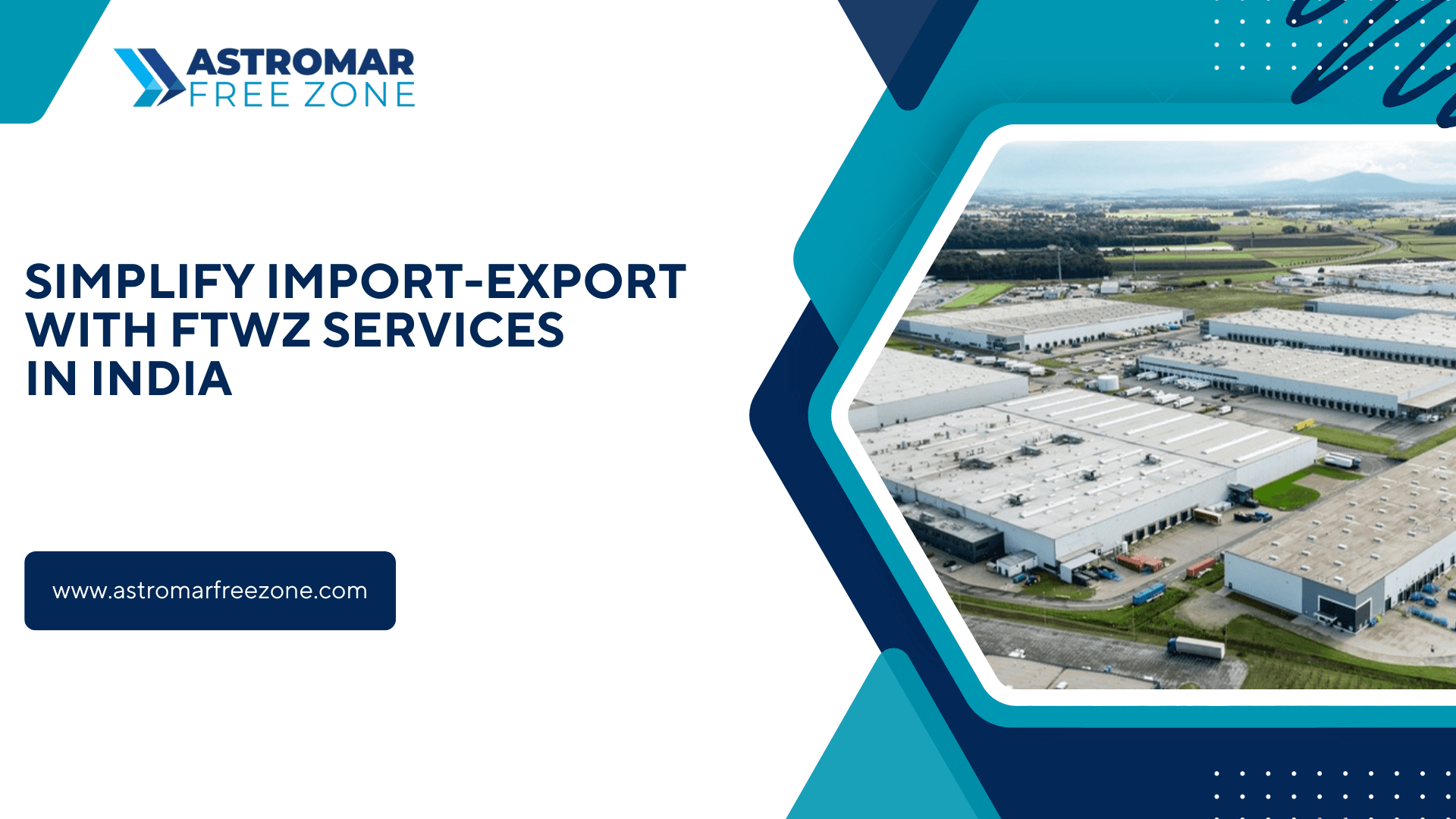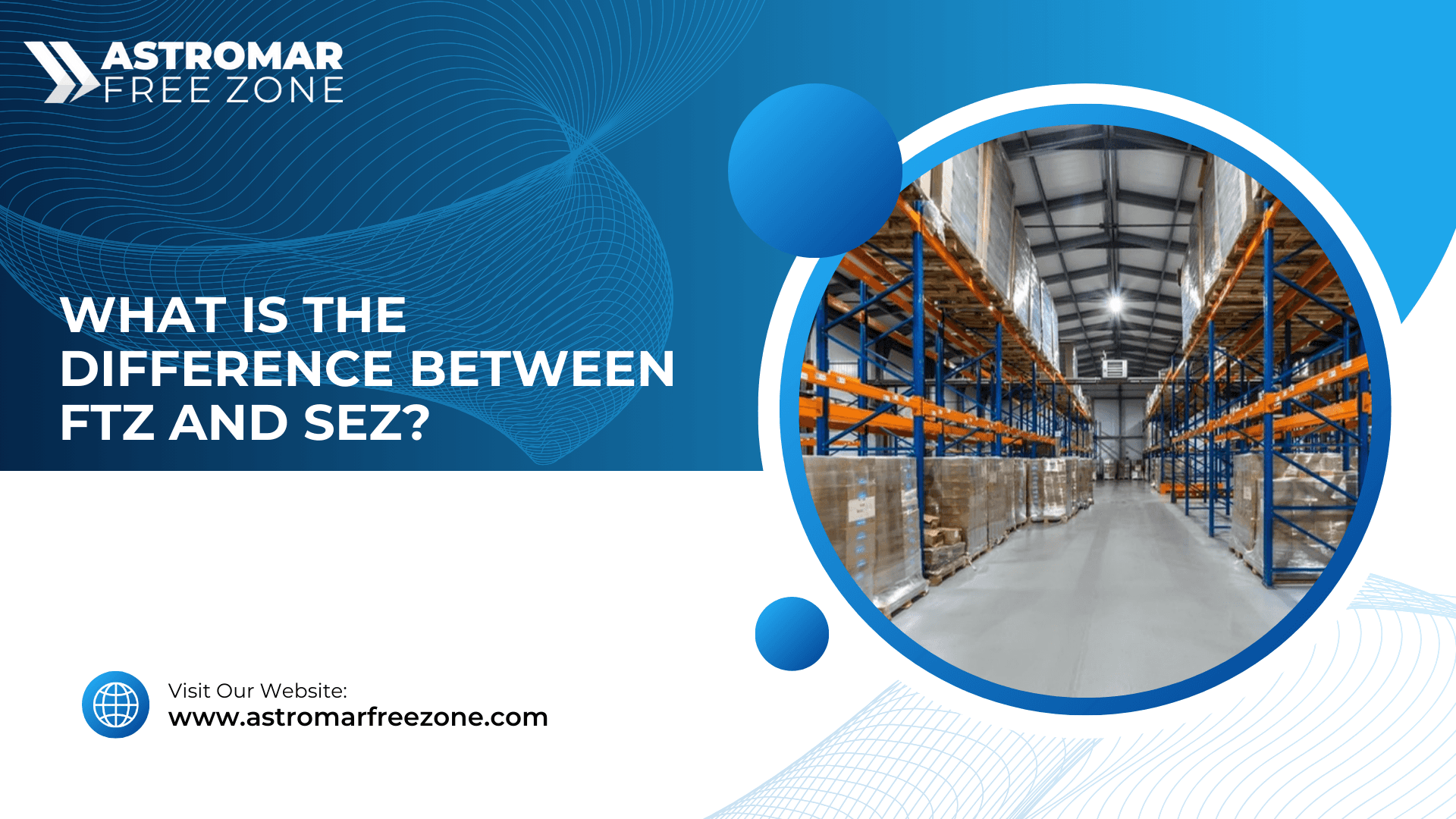




Special Economic Zones (SEZ) in India: A Complete Guide
Special Economic Zones (SEZs) in India are designated areas created to attract foreign investments, boost exports, and generate employment through tax benefits, regulatory incentives, and world-class infrastructure. These zones have played a crucial role in India's economic growth by fostering global trade and improving the ease of doing business.
What Are Special Economic Zones (SEZs)?
SEZs are specific areas within a country's boundaries that operate under distinct economic regulations, which are more liberal than the rest of the country. The primary objective of SEZs in India is to create an investor-friendly environment by providing tax incentives, streamlined procedures, and infrastructure support.
Key Benefits of SEZs in India
1. Duty-Free Operations
SEZs facilitate duty-free import and procurement of goods, allowing businesses to reduce costs significantly.
2. Simplified Regulatory Procedures
Businesses operating in SEZs enjoy single-window clearance for all approvals, simplifying the process of setting up and running operations.
3. World-Class Infrastructure
SEZs are equipped with state-of-the-art facilities, including uninterrupted power supply, transport connectivity, and robust IT networks, ensuring smooth operations.
SEZ vs. FTWZ: Understanding the Difference
Understanding the nuances between SEZs and Free Trade Warehousing Zones (FTWZs) is essential for businesses seeking to leverage the benefits of Free Trade Zones in India. While SEZs focus on manufacturing, exports, and value addition, FTWZs specialize in warehousing, distribution, and logistics activities.
Geographical Scope: SEZs are larger in scale and include industrial parks, residential areas, and commercial zones, while FTWZs are smaller and focus solely on trade and warehousing.
Focus: SEZs target comprehensive economic development, whereas FTWZs emphasize trade facilitation.
Regulatory Flexibility: SEZs have more extensive regulatory exemptions compared to FTWZs.
Leveraging Free Trade Zones for Business Growth
Free Trade Zones (FTZs), including SEZs and FTWZs, are more than just tax-efficient areas; they are comprehensive trade and logistics hubs that empower businesses to compete in global markets effectively. SEZs focus on manufacturing and export-driven industries, while FTWZs provide tailored solutions for warehousing, distribution, and logistics, making them indispensable for businesses aiming for global expansion.
By understanding the distinct benefits of SEZs and FTWZs, businesses can strategically optimize their operations, improve supply chain efficiency, and unlock growth opportunities in international trade.
How Astromar Can Assist
Astromar offers strategic solutions for businesses looking to leverage SEZs and Free Trade Warehousing Zones (FTWZs) in India. With a focus on efficiency, cost savings, and global market access, Astromar provides tailored services to help you succeed in India's dynamic trade environment.
📞 Contact Us Today
+91 9940211014
📧 sales@astromarfreezone.com
🌐 www.astromarfreezone.com
Special Economic Zones (SEZ) in India: A Complete Guide
Special Economic Zones (SEZs) in India are designated areas created to attract foreign investments, boost exports, and generate employment through tax benefits, regulatory incentives, and world-class infrastructure. These zones have played a crucial role in India's economic growth by fostering global trade and improving the ease of doing business.
What Are Special Economic Zones (SEZs)?
SEZs are specific areas within a country's boundaries that operate under distinct economic regulations, which are more liberal than the rest of the country. The primary objective of SEZs in India is to create an investor-friendly environment by providing tax incentives, streamlined procedures, and infrastructure support.
Key Benefits of SEZs in India
1. Duty-Free Operations
SEZs facilitate duty-free import and procurement of goods, allowing businesses to reduce costs significantly.
2. Simplified Regulatory Procedures
Businesses operating in SEZs enjoy single-window clearance for all approvals, simplifying the process of setting up and running operations.
3. World-Class Infrastructure
SEZs are equipped with state-of-the-art facilities, including uninterrupted power supply, transport connectivity, and robust IT networks, ensuring smooth operations.
SEZ vs. FTWZ: Understanding the Difference
Understanding the nuances between SEZs and Free Trade Warehousing Zones (FTWZs) is essential for businesses seeking to leverage the benefits of Free Trade Zones in India. While SEZs focus on manufacturing, exports, and value addition, FTWZs specialize in warehousing, distribution, and logistics activities.
Geographical Scope: SEZs are larger in scale and include industrial parks, residential areas, and commercial zones, while FTWZs are smaller and focus solely on trade and warehousing.
Focus: SEZs target comprehensive economic development, whereas FTWZs emphasize trade facilitation.
Regulatory Flexibility: SEZs have more extensive regulatory exemptions compared to FTWZs.
Leveraging Free Trade Zones for Business Growth
Free Trade Zones (FTZs), including SEZs and FTWZs, are more than just tax-efficient areas; they are comprehensive trade and logistics hubs that empower businesses to compete in global markets effectively. SEZs focus on manufacturing and export-driven industries, while FTWZs provide tailored solutions for warehousing, distribution, and logistics, making them indispensable for businesses aiming for global expansion.
By understanding the distinct benefits of SEZs and FTWZs, businesses can strategically optimize their operations, improve supply chain efficiency, and unlock growth opportunities in international trade.
How Astromar Can Assist
Astromar offers strategic solutions for businesses looking to leverage SEZs and Free Trade Warehousing Zones (FTWZs) in India. With a focus on efficiency, cost savings, and global market access, Astromar provides tailored services to help you succeed in India's dynamic trade environment.
📞 Contact Us Today
+91 9940211014
📧 sales@astromarfreezone.com
🌐 www.astromarfreezone.com
Special Economic Zones (SEZ) in India: A Complete Guide
Special Economic Zones (SEZs) in India are designated areas created to attract foreign investments, boost exports, and generate employment through tax benefits, regulatory incentives, and world-class infrastructure. These zones have played a crucial role in India's economic growth by fostering global trade and improving the ease of doing business.
What Are Special Economic Zones (SEZs)?
SEZs are specific areas within a country's boundaries that operate under distinct economic regulations, which are more liberal than the rest of the country. The primary objective of SEZs in India is to create an investor-friendly environment by providing tax incentives, streamlined procedures, and infrastructure support.
Key Benefits of SEZs in India
1. Duty-Free Operations
SEZs facilitate duty-free import and procurement of goods, allowing businesses to reduce costs significantly.
2. Simplified Regulatory Procedures
Businesses operating in SEZs enjoy single-window clearance for all approvals, simplifying the process of setting up and running operations.
3. World-Class Infrastructure
SEZs are equipped with state-of-the-art facilities, including uninterrupted power supply, transport connectivity, and robust IT networks, ensuring smooth operations.
SEZ vs. FTWZ: Understanding the Difference
Understanding the nuances between SEZs and Free Trade Warehousing Zones (FTWZs) is essential for businesses seeking to leverage the benefits of Free Trade Zones in India. While SEZs focus on manufacturing, exports, and value addition, FTWZs specialize in warehousing, distribution, and logistics activities.
Geographical Scope: SEZs are larger in scale and include industrial parks, residential areas, and commercial zones, while FTWZs are smaller and focus solely on trade and warehousing.
Focus: SEZs target comprehensive economic development, whereas FTWZs emphasize trade facilitation.
Regulatory Flexibility: SEZs have more extensive regulatory exemptions compared to FTWZs.
Leveraging Free Trade Zones for Business Growth
Free Trade Zones (FTZs), including SEZs and FTWZs, are more than just tax-efficient areas; they are comprehensive trade and logistics hubs that empower businesses to compete in global markets effectively. SEZs focus on manufacturing and export-driven industries, while FTWZs provide tailored solutions for warehousing, distribution, and logistics, making them indispensable for businesses aiming for global expansion.
By understanding the distinct benefits of SEZs and FTWZs, businesses can strategically optimize their operations, improve supply chain efficiency, and unlock growth opportunities in international trade.
How Astromar Can Assist
Astromar offers strategic solutions for businesses looking to leverage SEZs and Free Trade Warehousing Zones (FTWZs) in India. With a focus on efficiency, cost savings, and global market access, Astromar provides tailored services to help you succeed in India's dynamic trade environment.
📞 Contact Us Today
+91 9940211014
📧 sales@astromarfreezone.com
🌐 www.astromarfreezone.com






